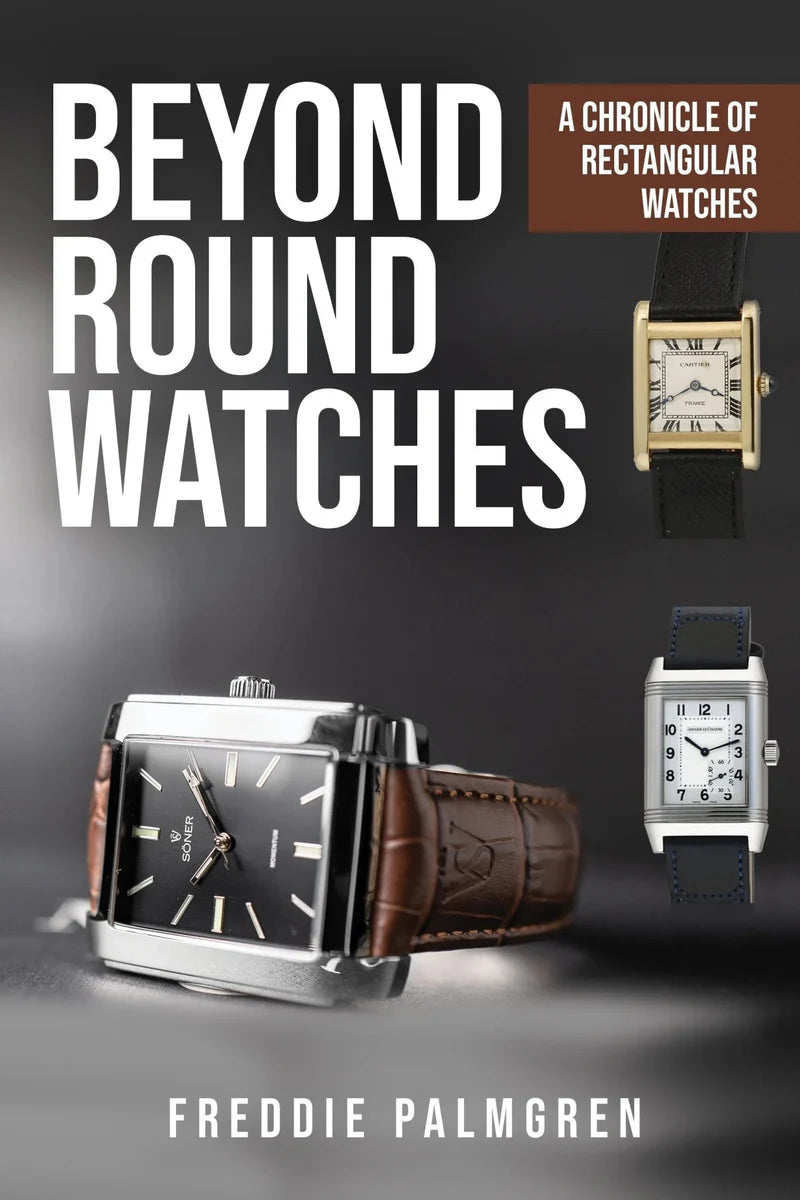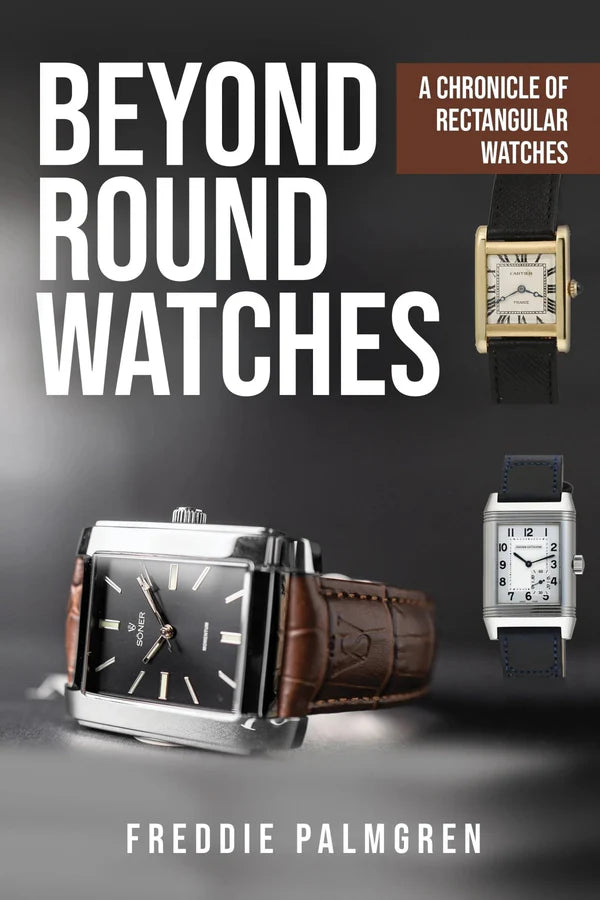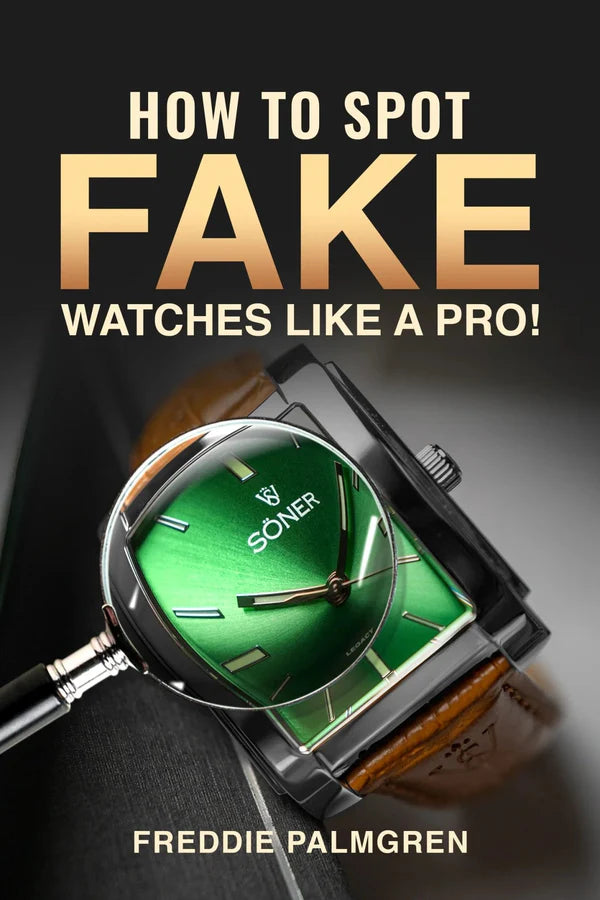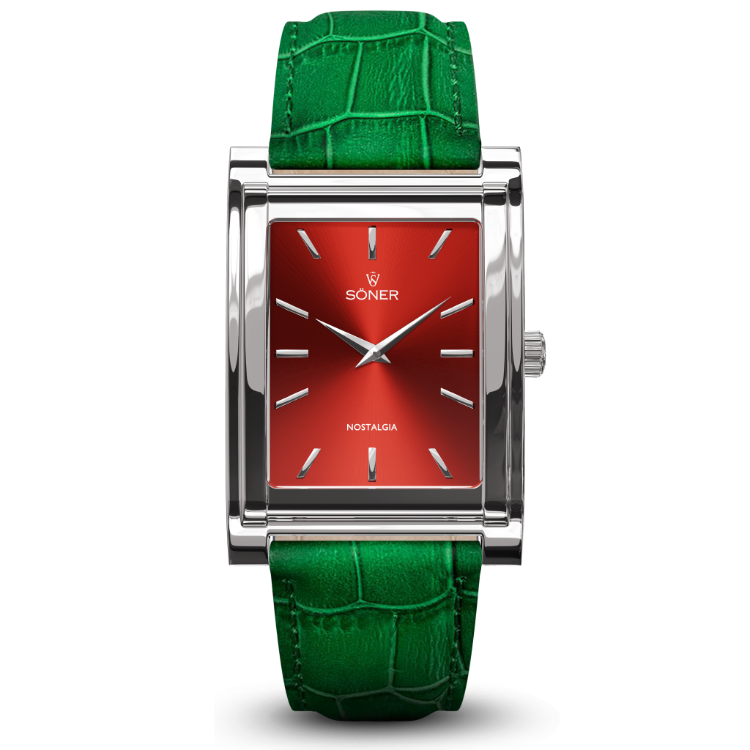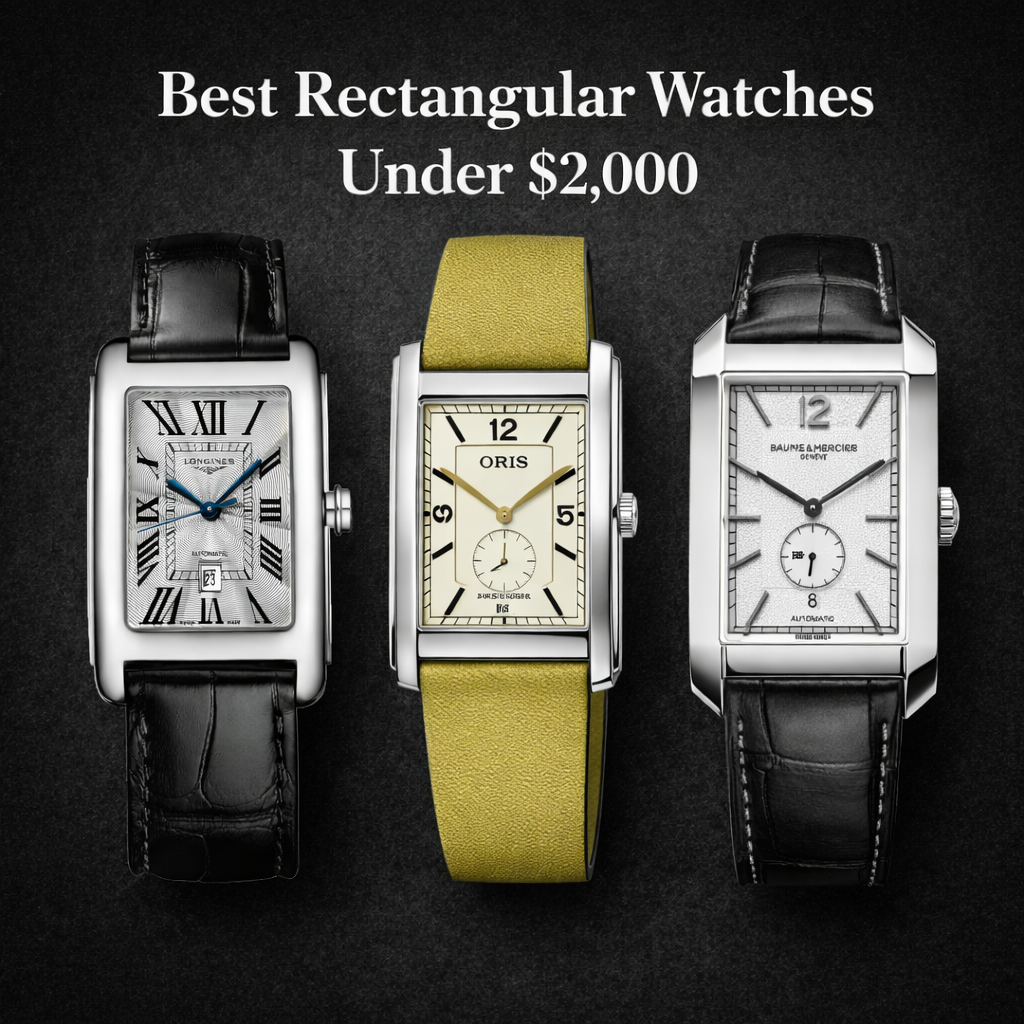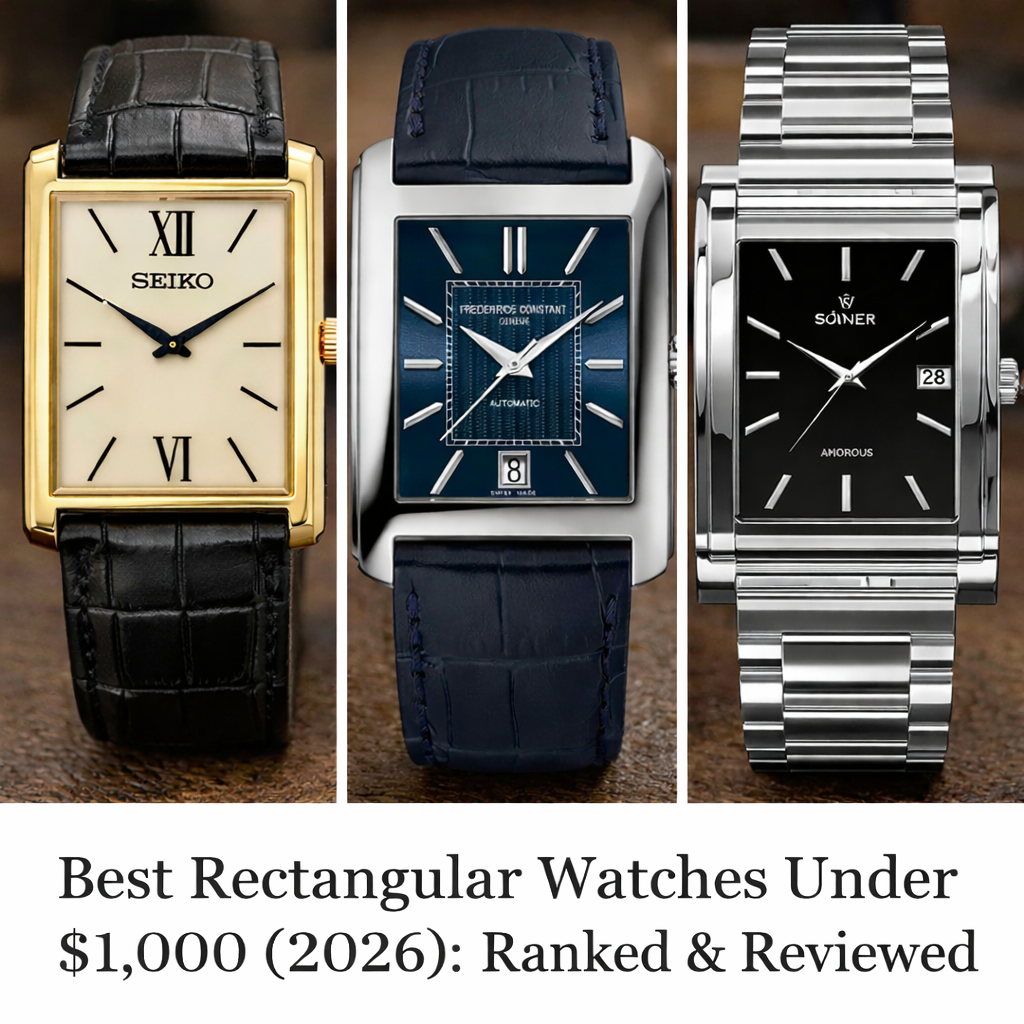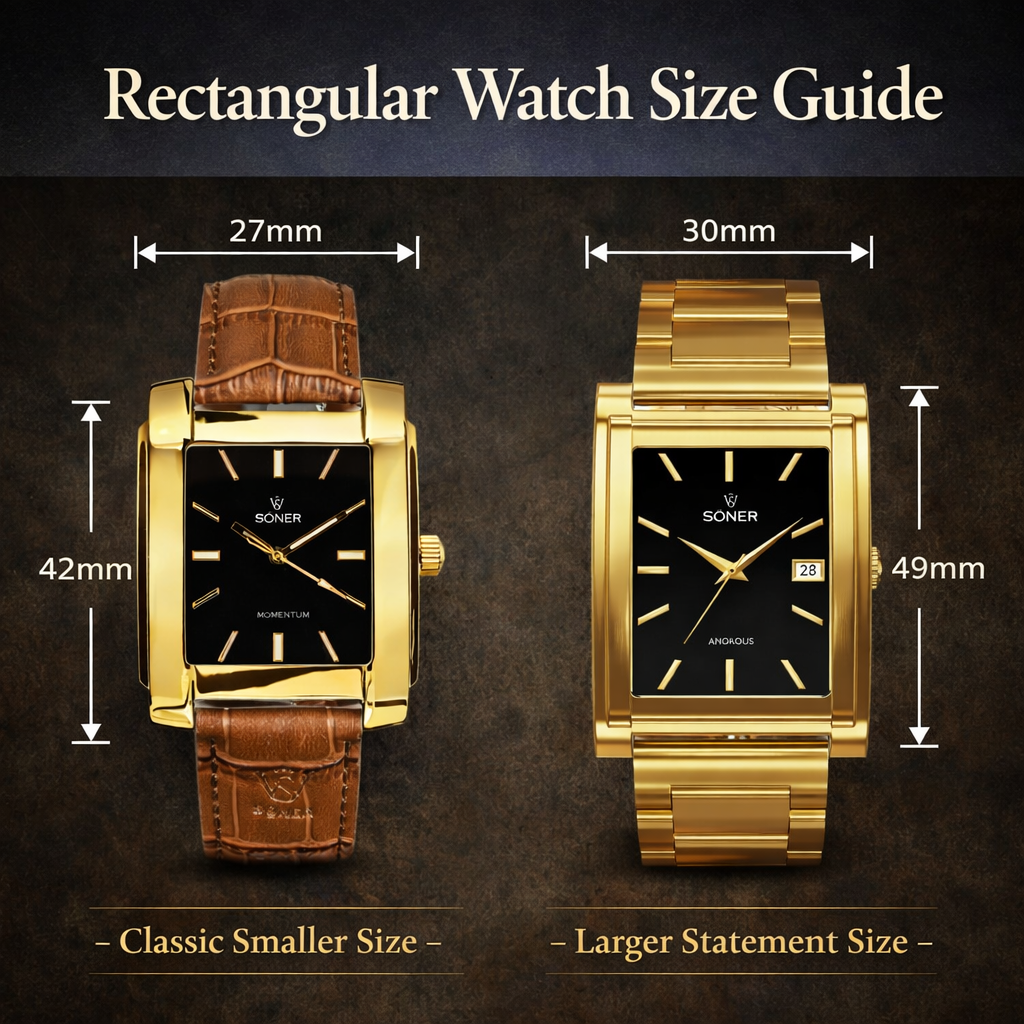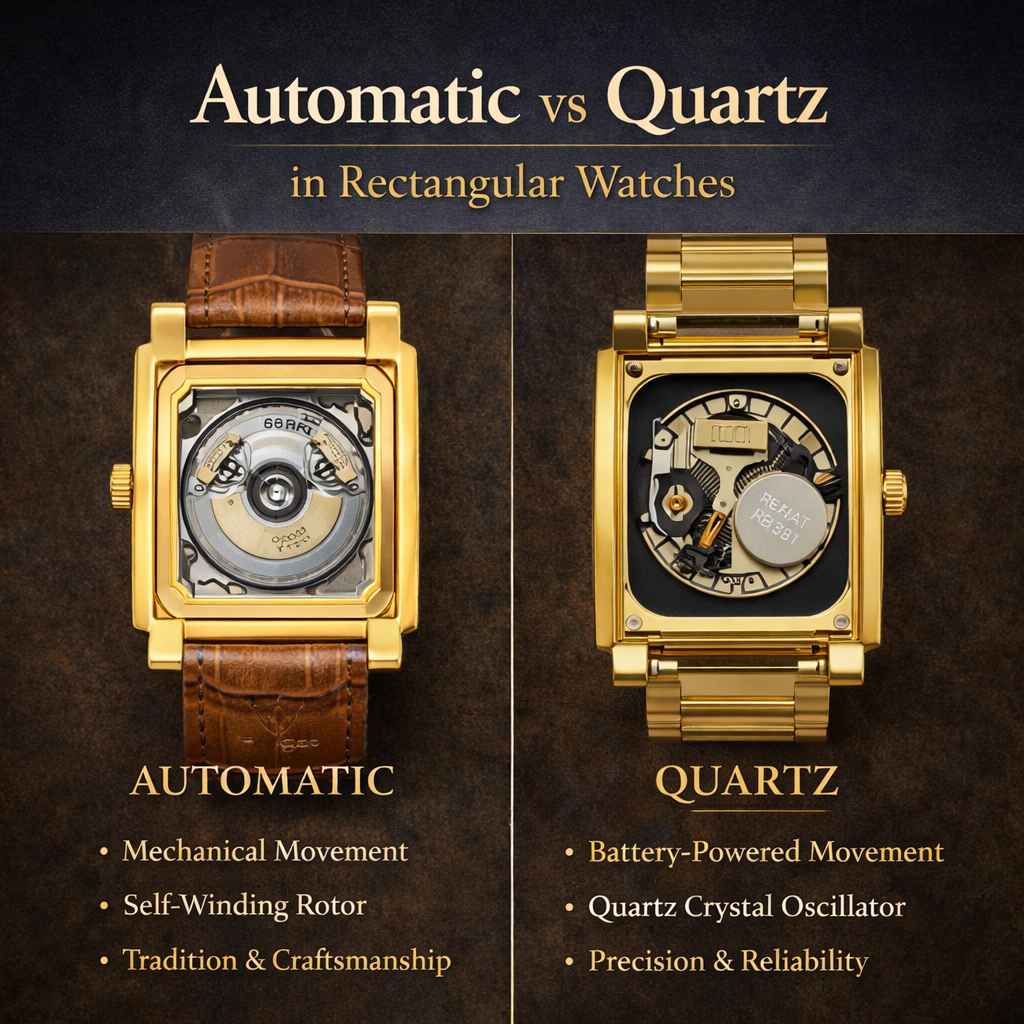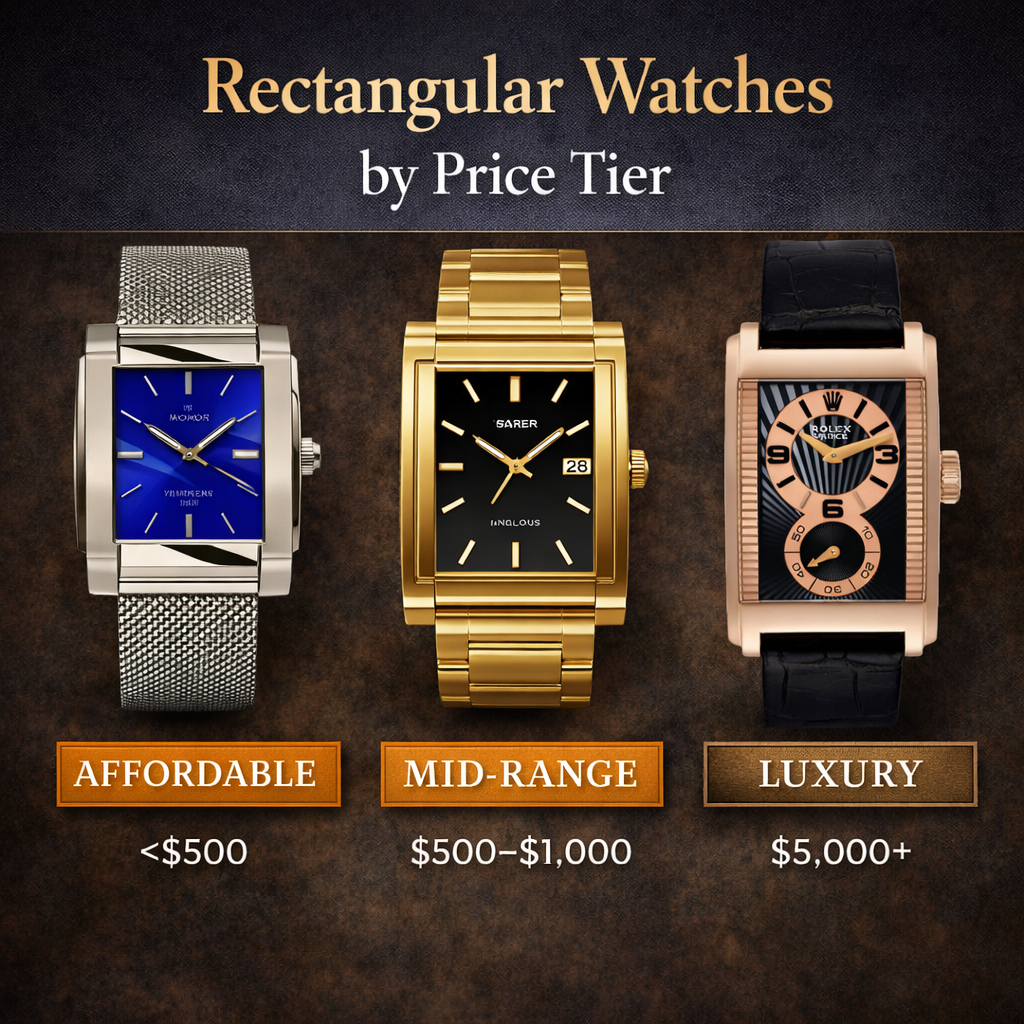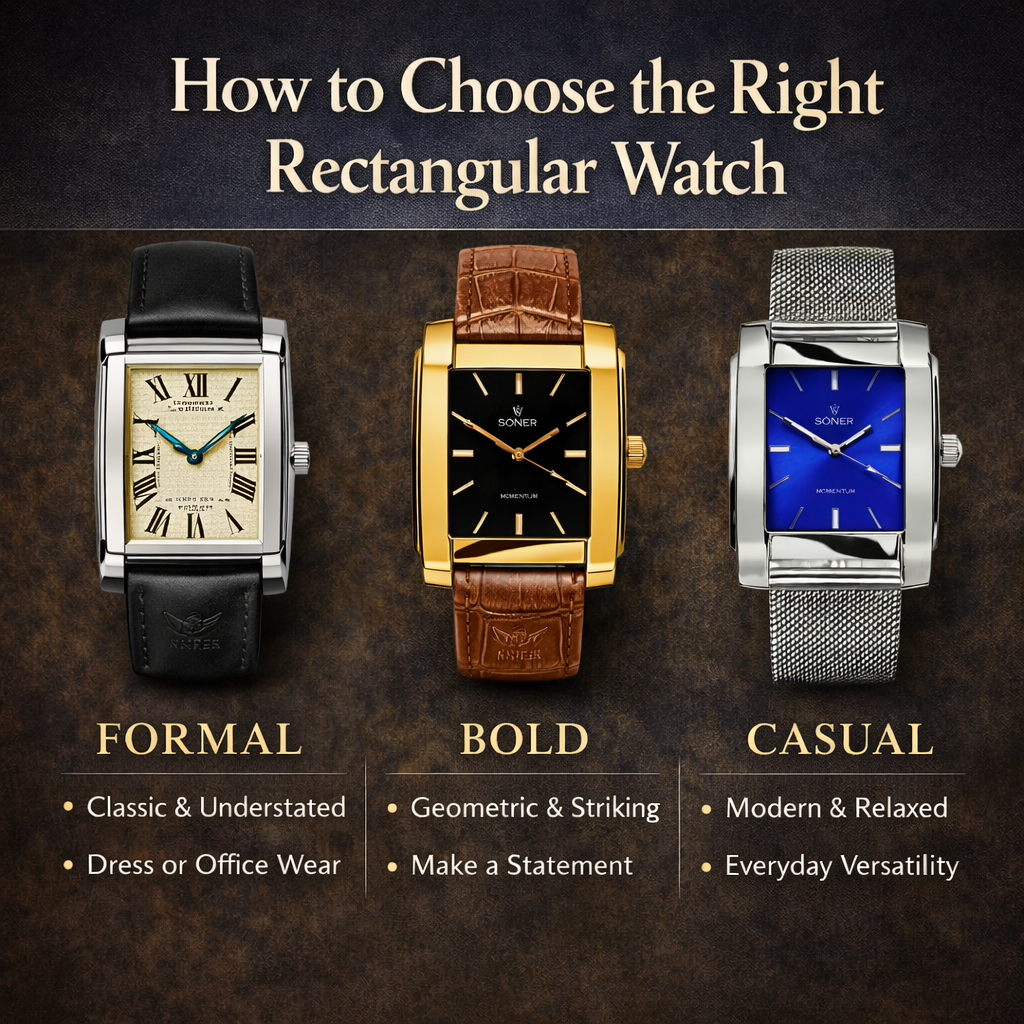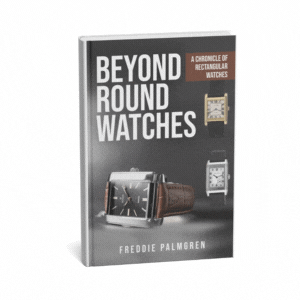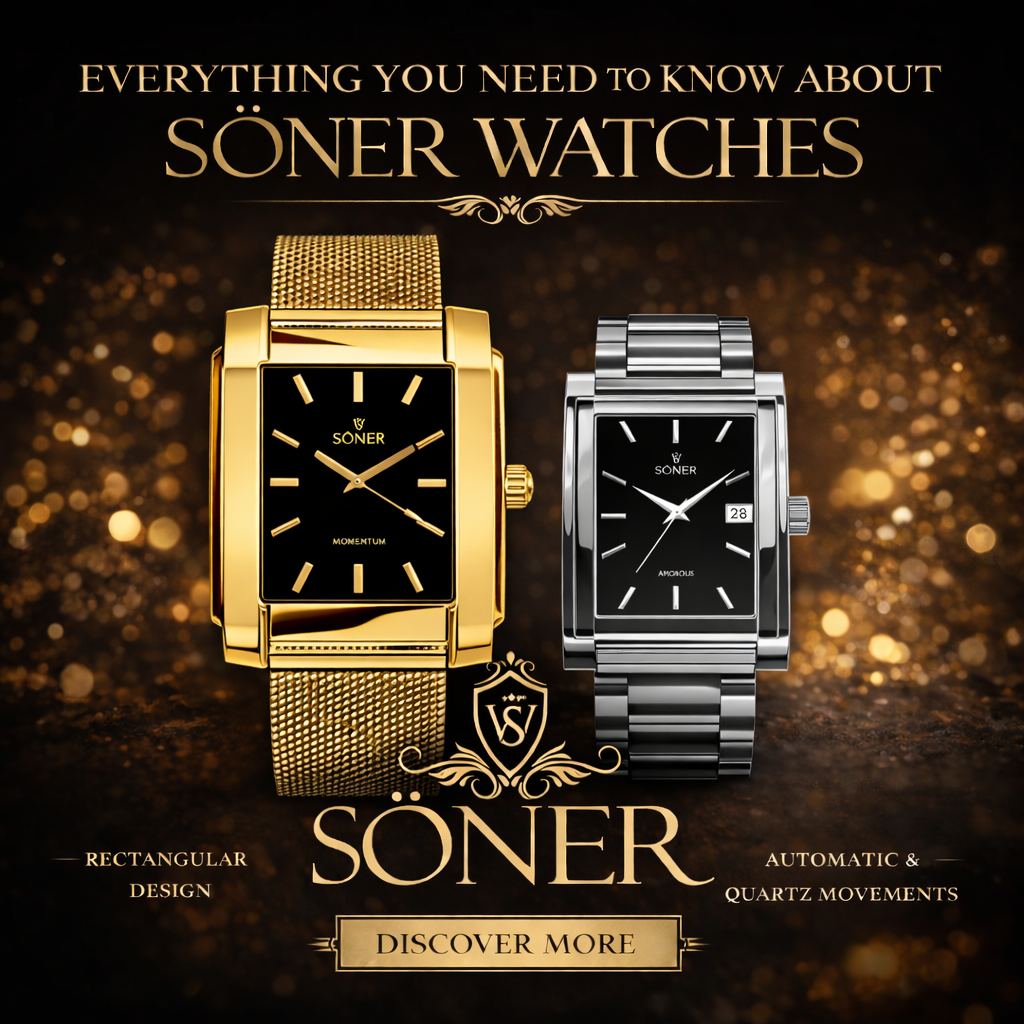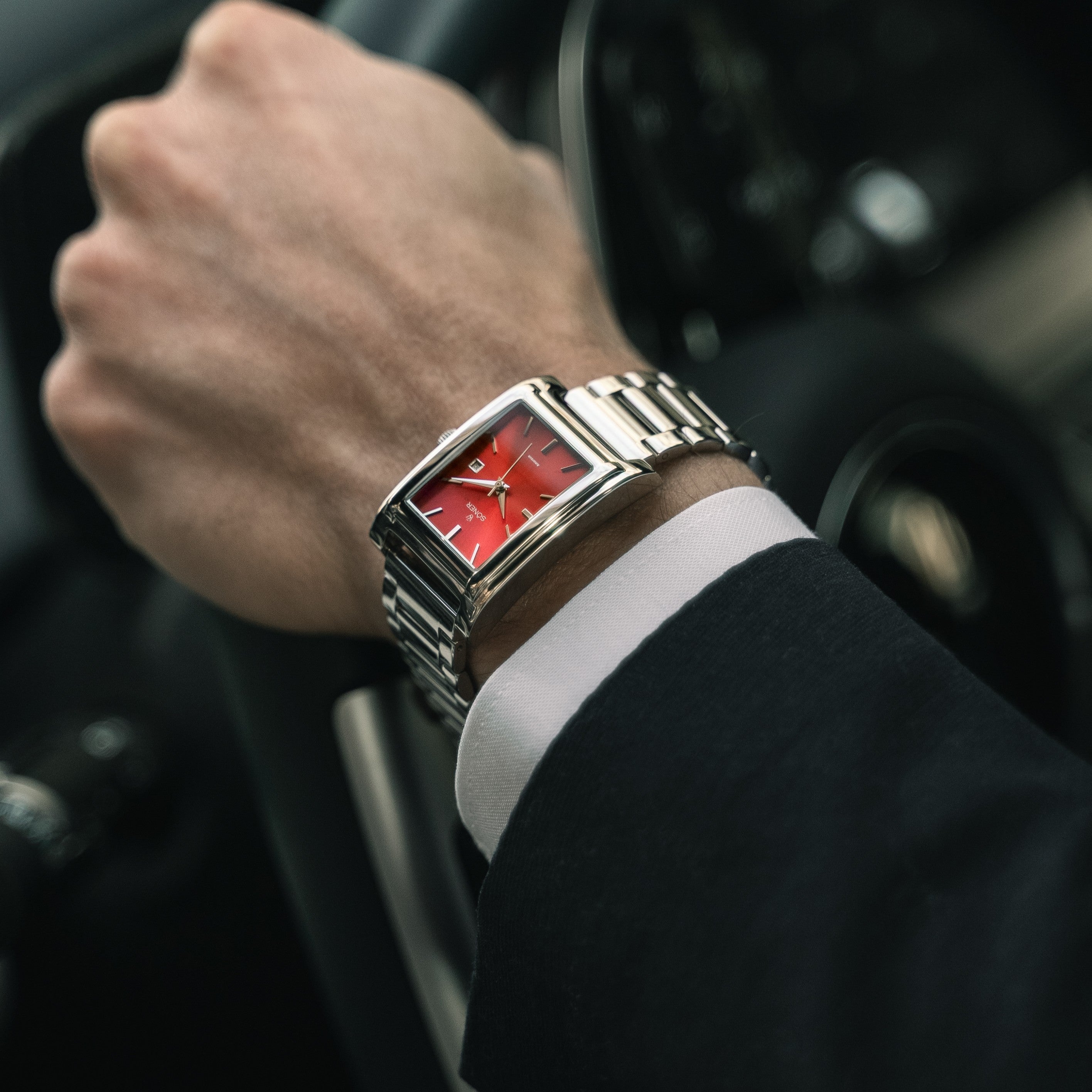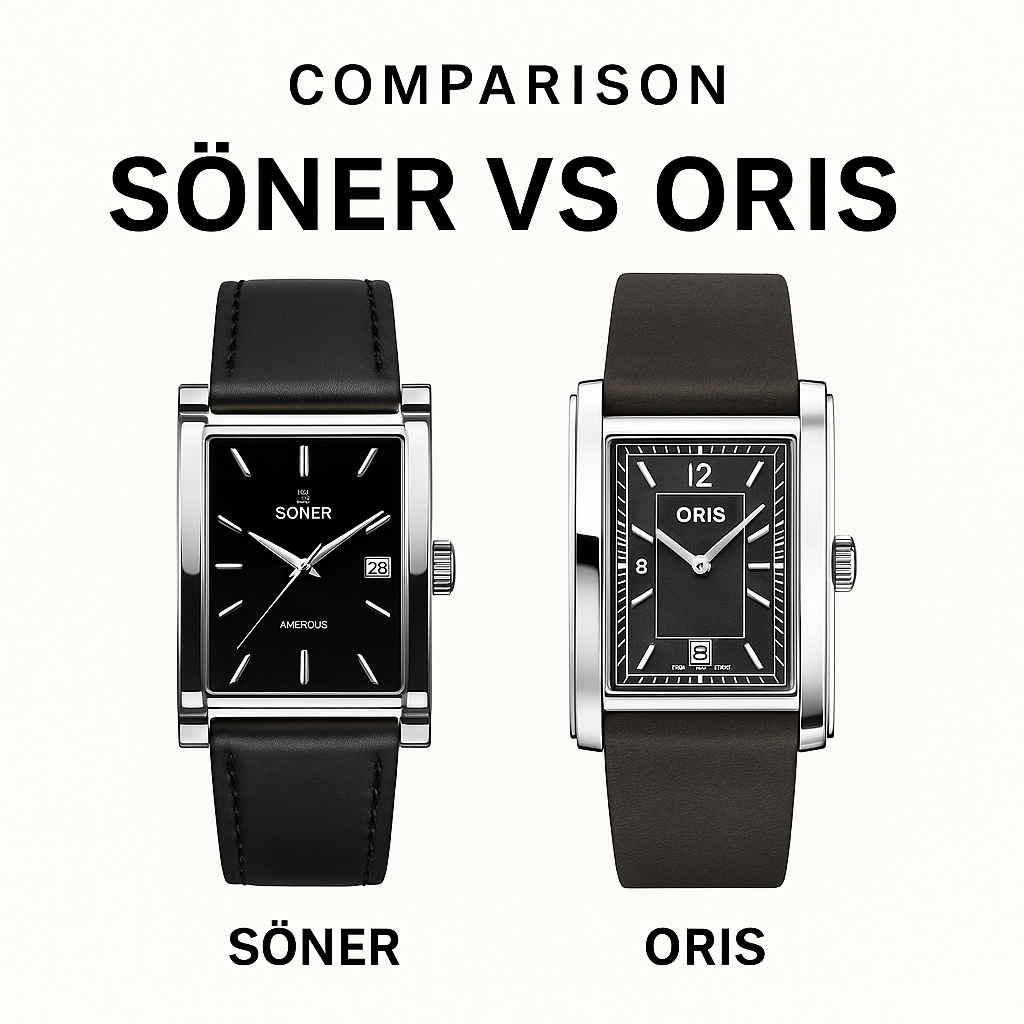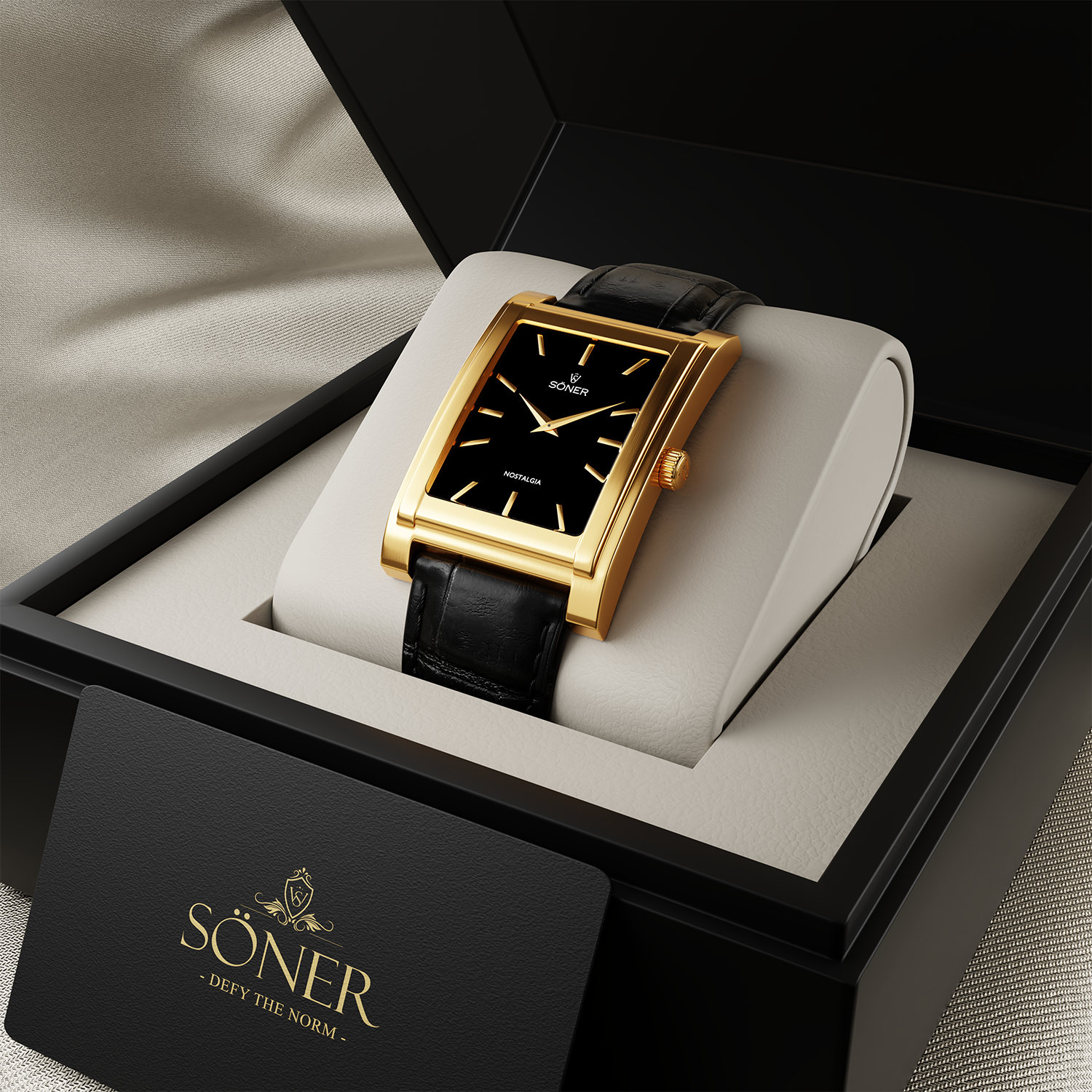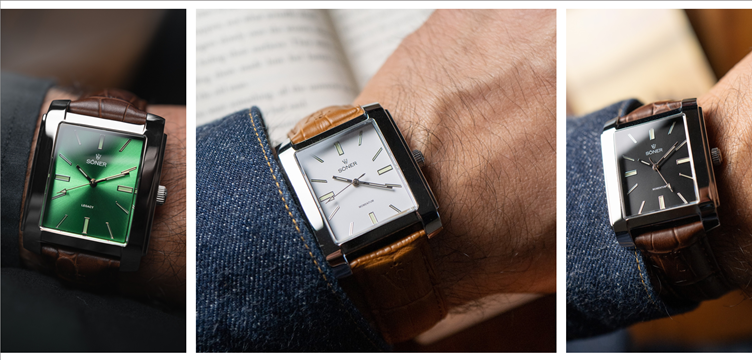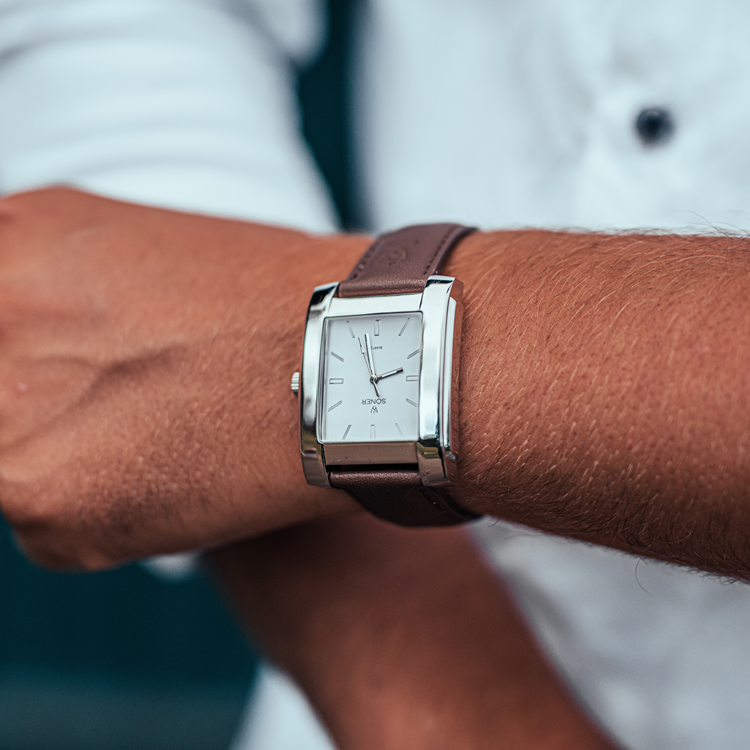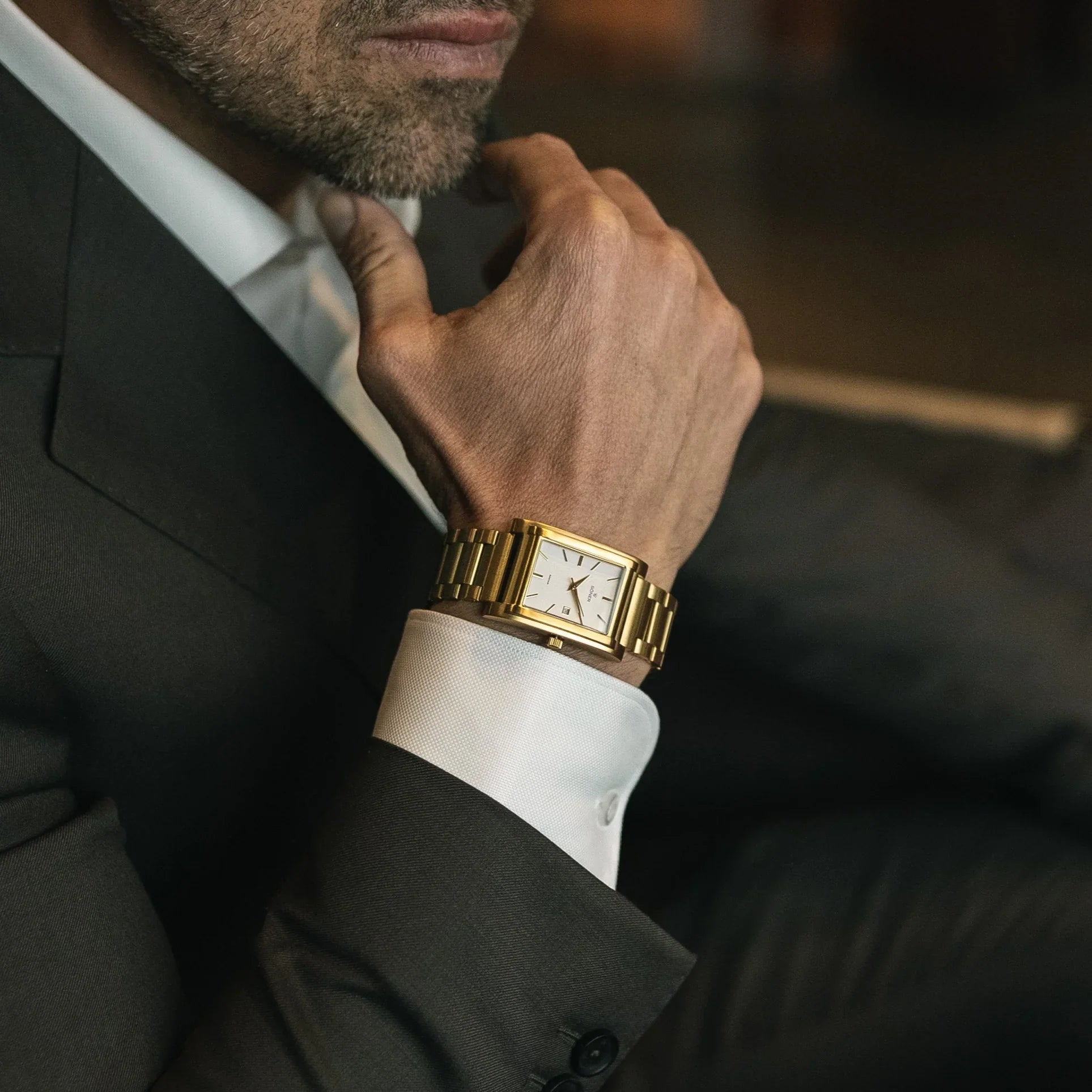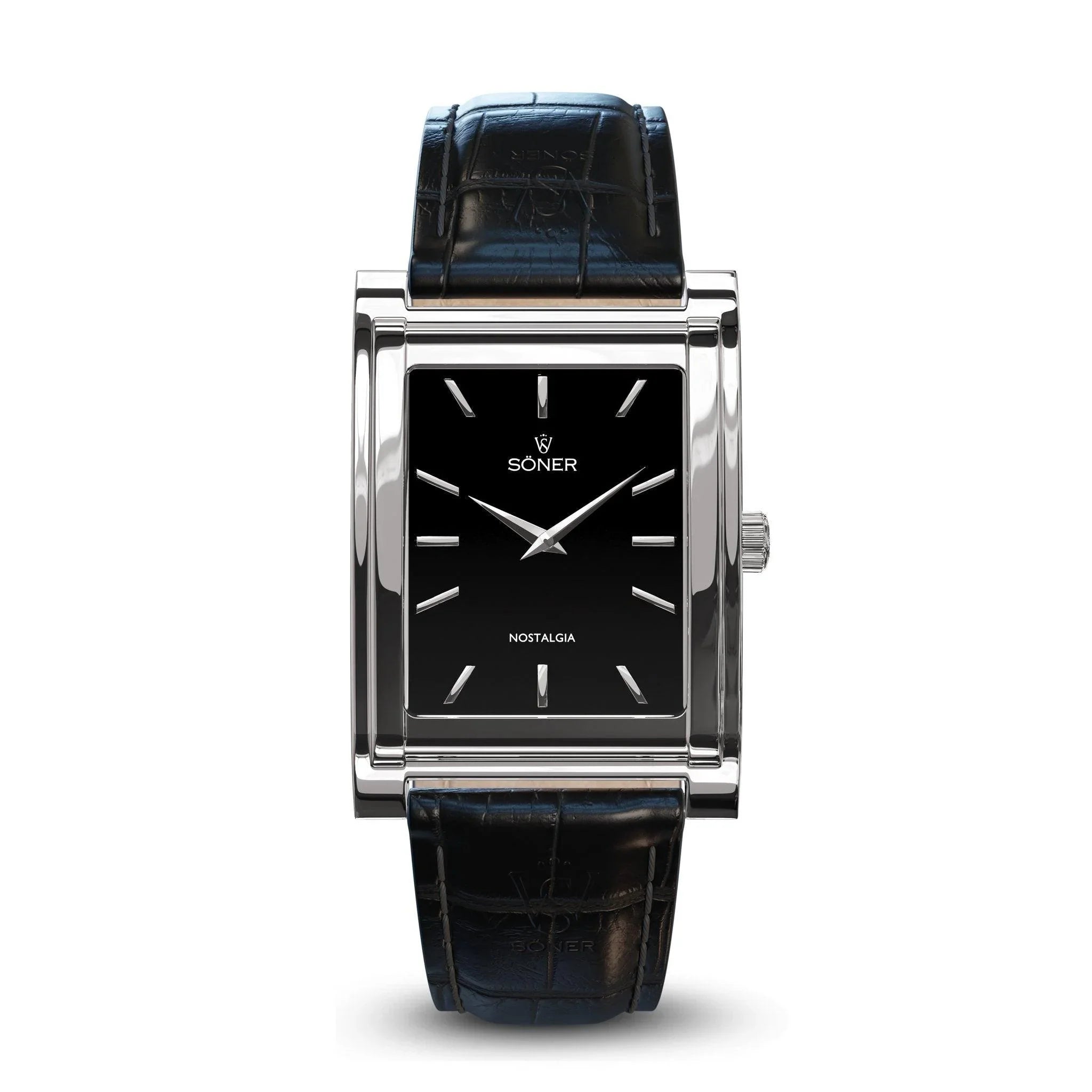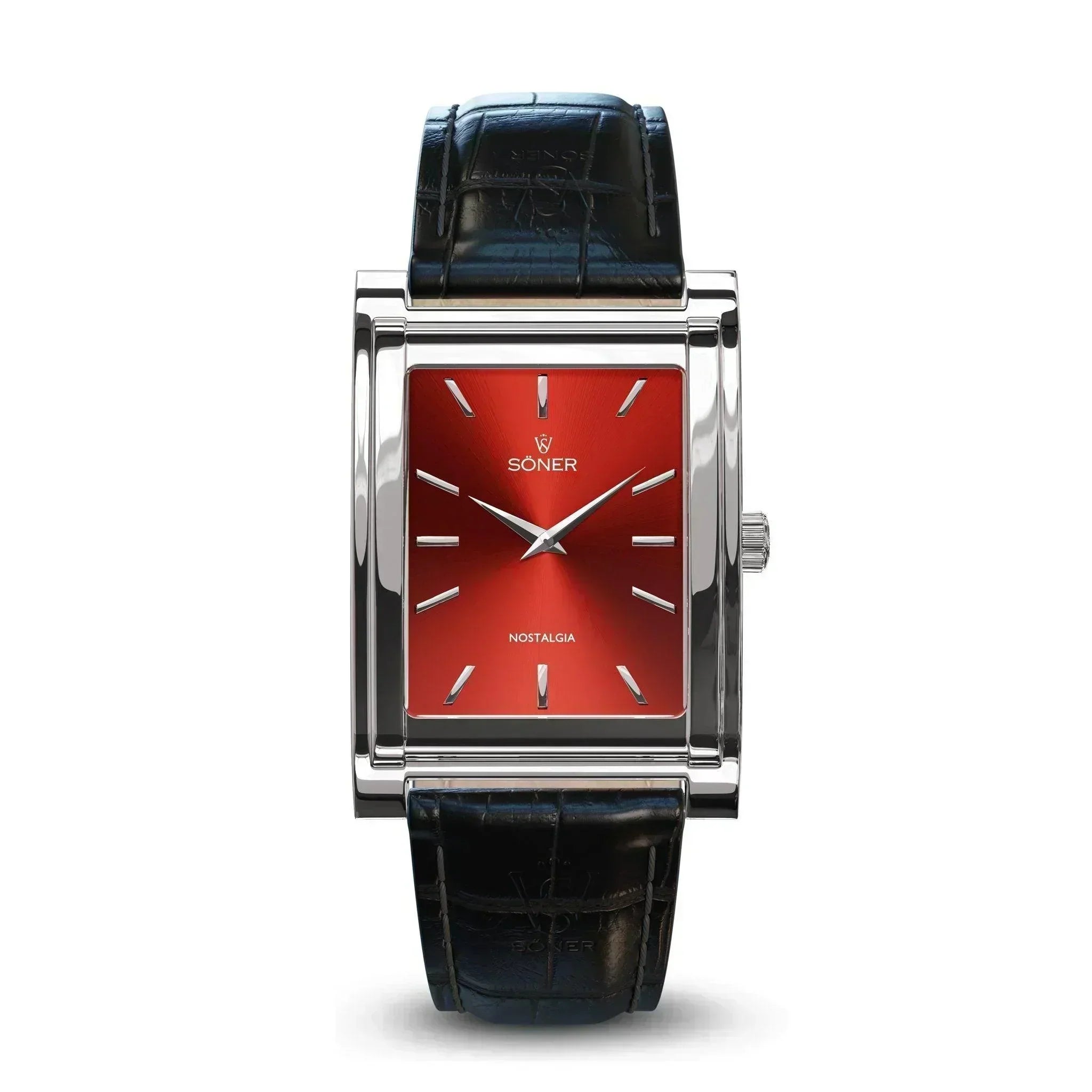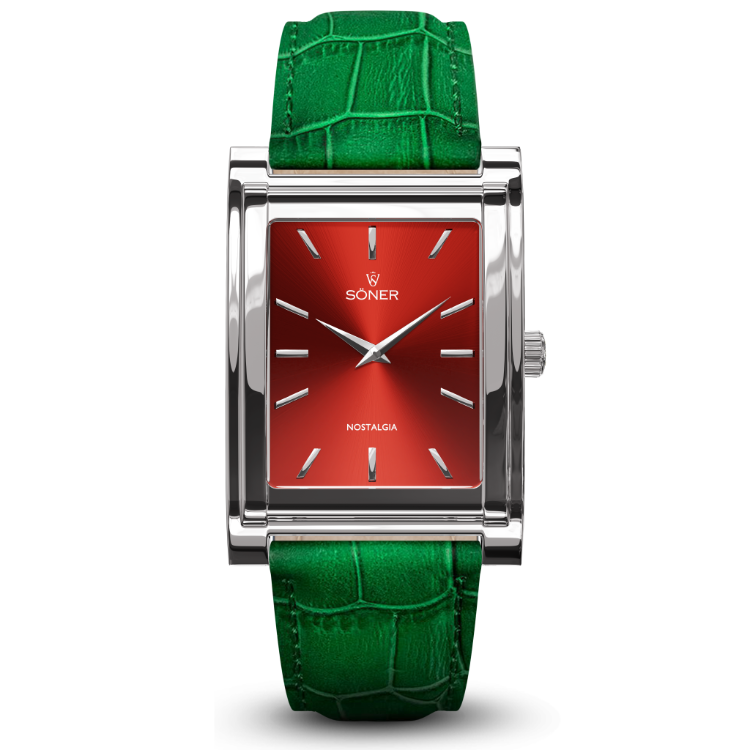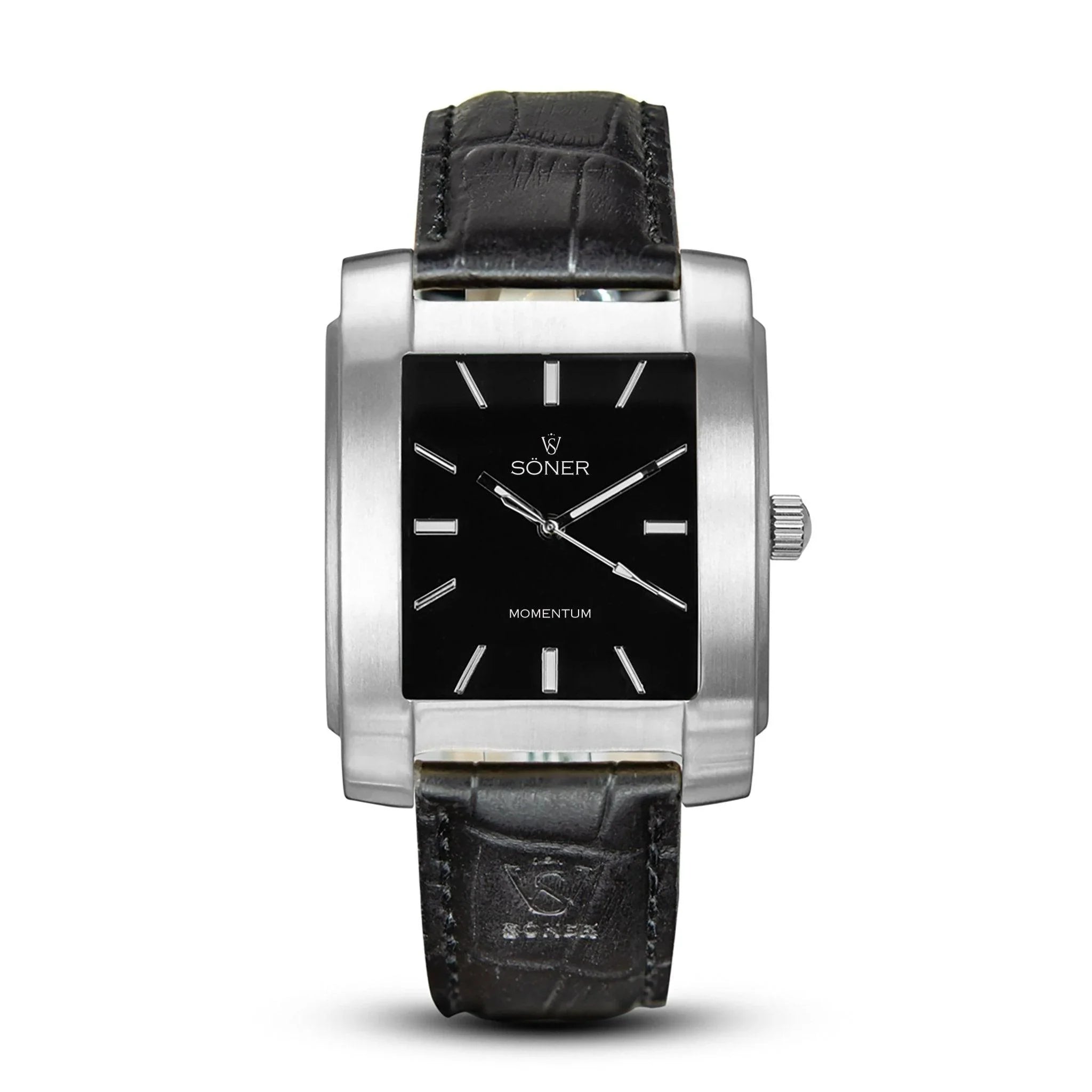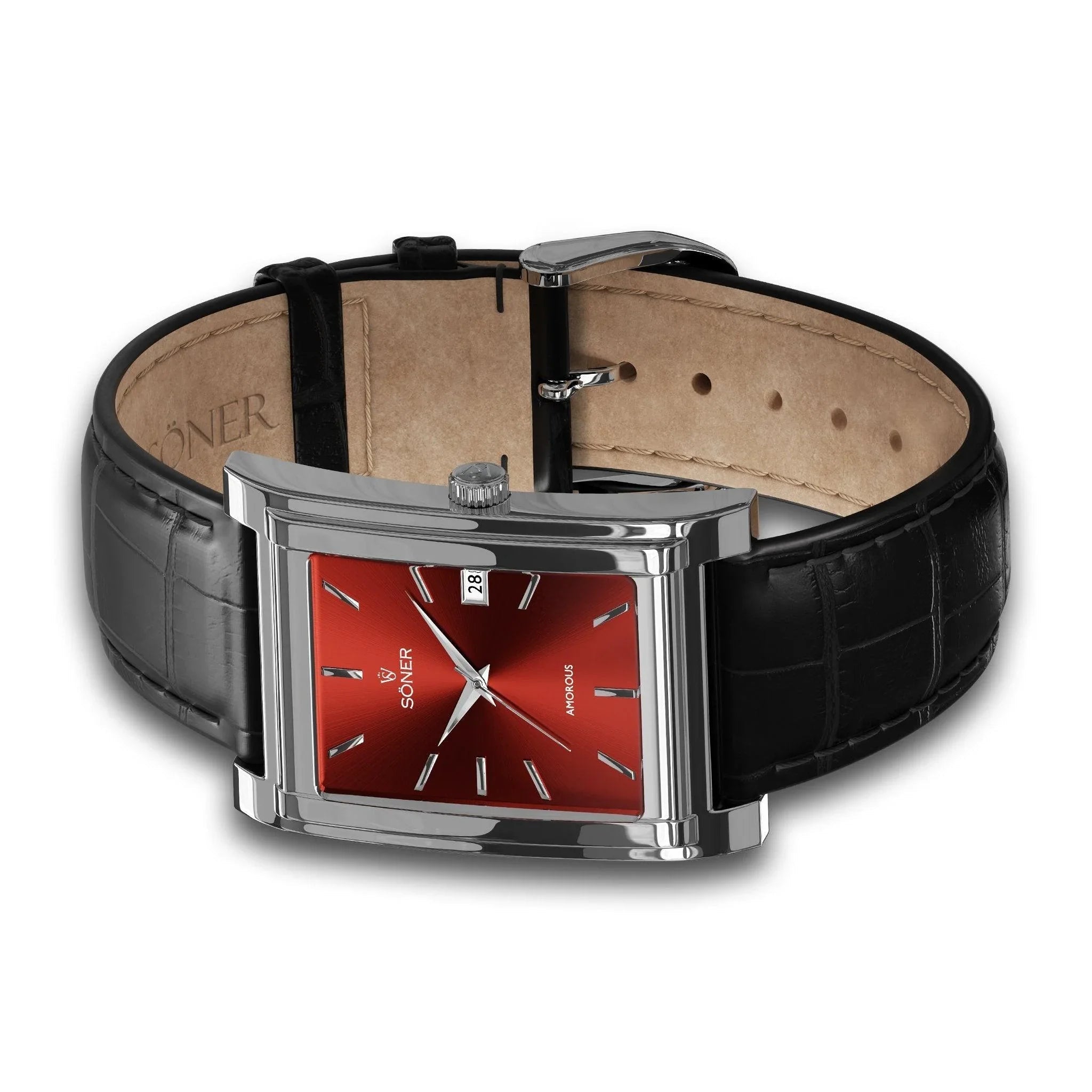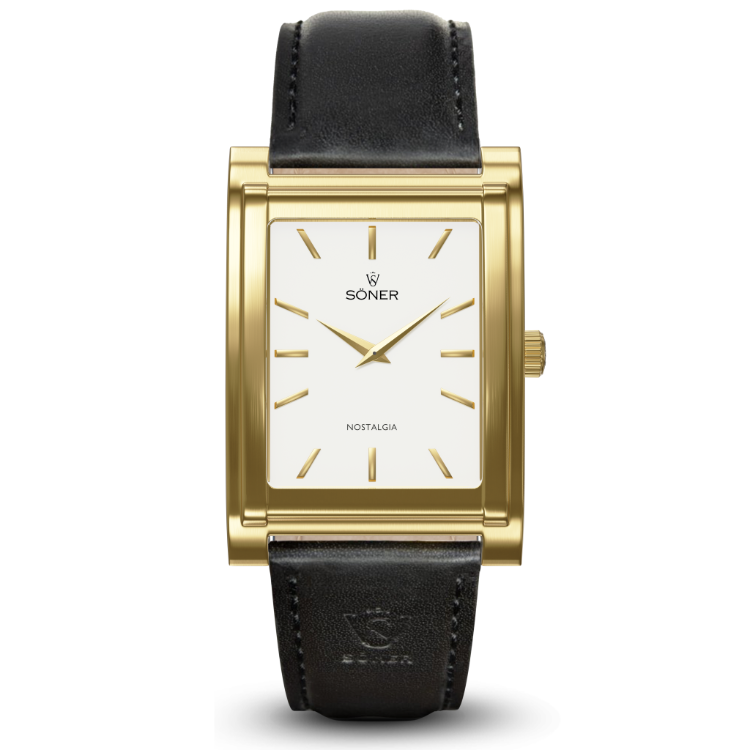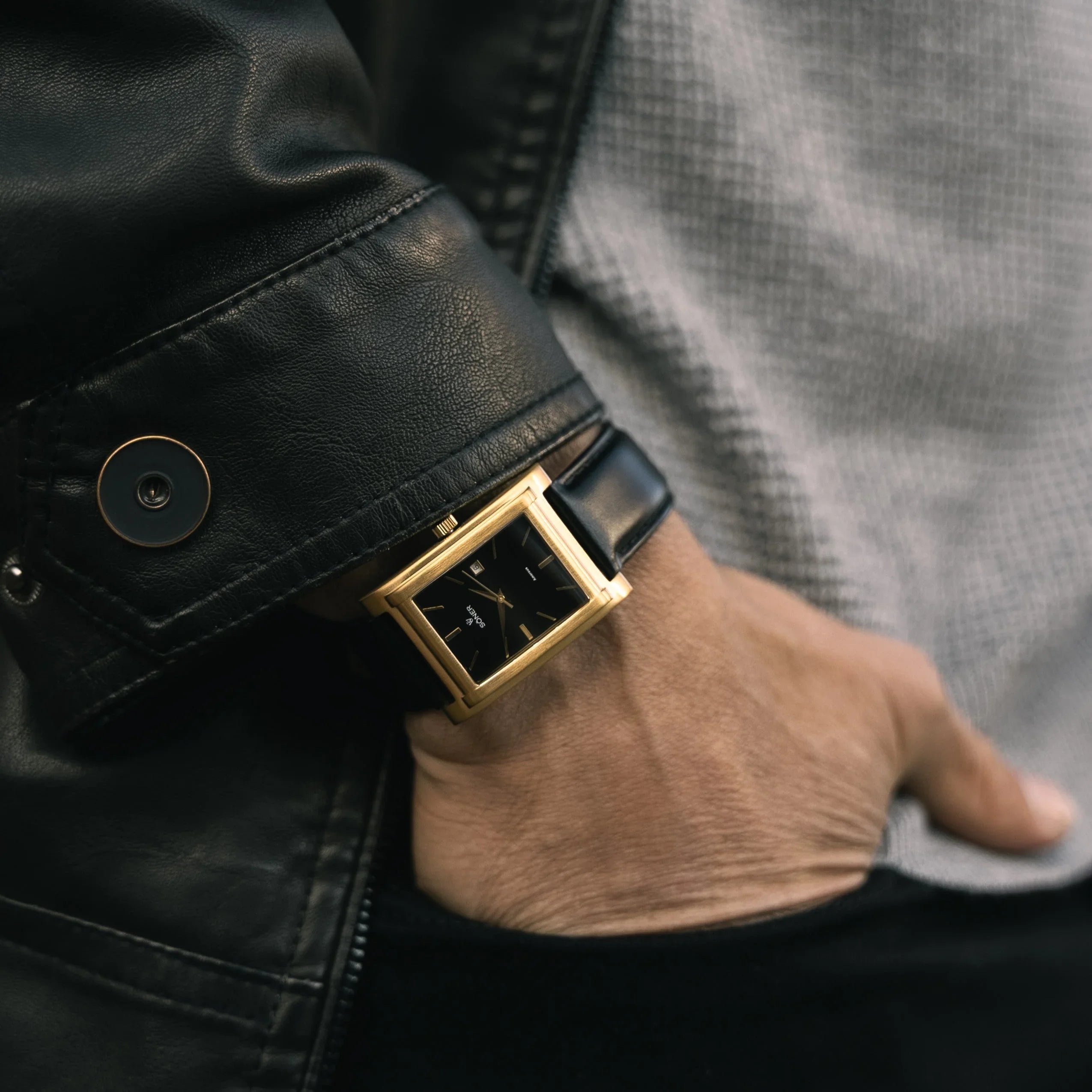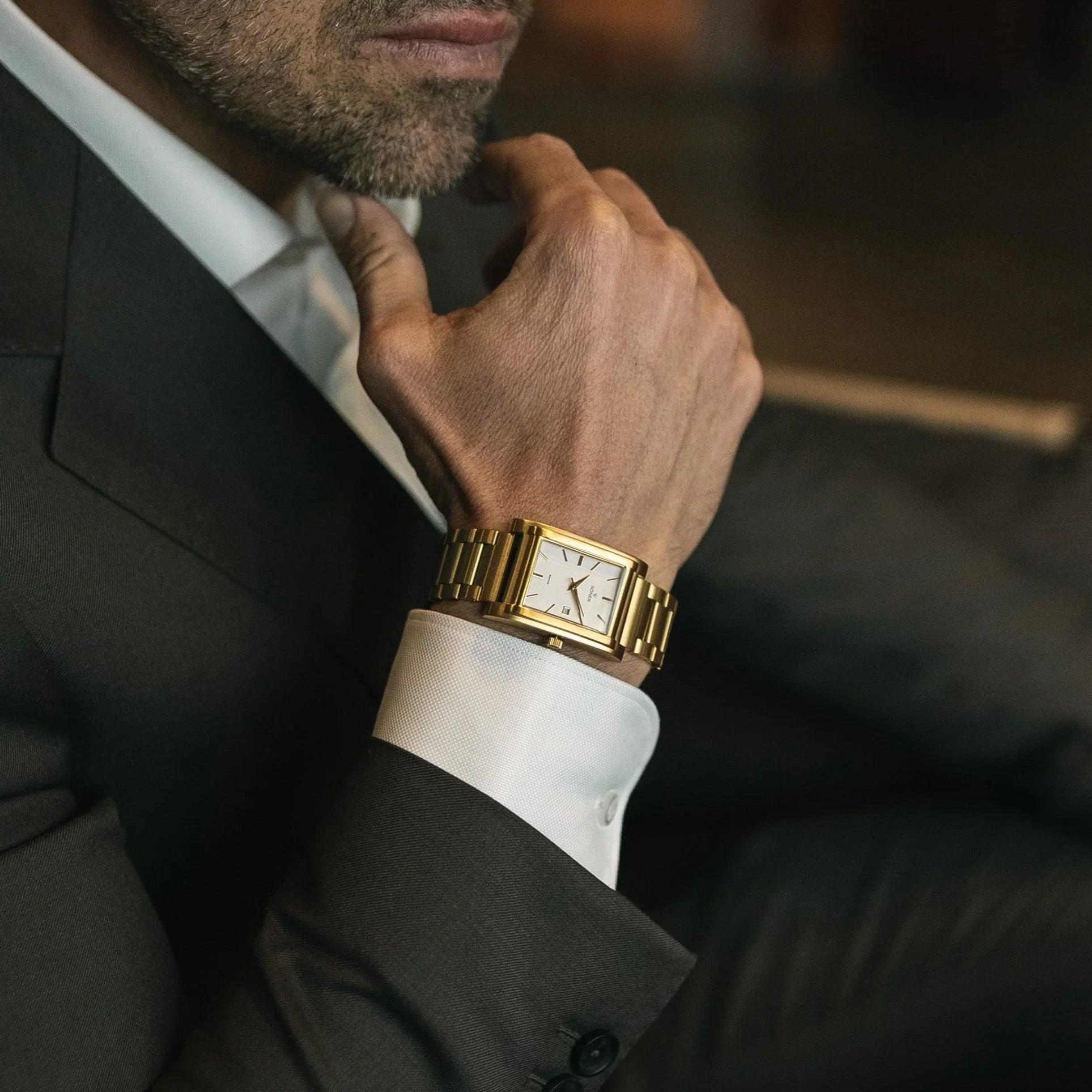Key Takeaways
Table of Contents
Meilleurs cadrans de montre
Ce qui fait qu'un cadran de montre se distingue, c'est sa beauté et son savoir-faire. Les plus beaux cadrans allient à la fois art et utilité. Une couleur vibrante élève la présence : les cadrans fumé qui passent de bords foncés à un centre clair jouent dramatiquement avec la lumière. La texture donne de la profondeur : les cadrans soleil scintillent tandis que les cadrans lin créent des variations subtiles, et les motifs guilloché hypnotisent par leur répétition.
Pour la plupart des collectionneurs, le cadran est souvent le facteur décisif dans l'achat. Deux montres peuvent différer considérablement même si elles ont des mouvements similaires, surtout en termes de désirabilité à cause de l'art du cadran. Par exemple, les cadrans texturés de Grand Seiko, inspirés par la neige, les fleurs de cerisier ou les vagues, sont célébrés car ils évoquent la nature, pas seulement la mécanique. Même des montres abordables comme la SÖNER Nostalgia Rome offrent des cadrans rouges éblouissants à moins de 500 $, prouvant que l'art ne se limite pas aux marques haut de gamme.
La beauté moderne des cadrans repose aussi sur les couches. Un cadran commence généralement par une base métallique laquée ou traitée galvaniquement, puis surmontée d’index appliqués, d’une piste des minutes imprimée, et parfois d’un anneau de chapitre en relief pour plus de profondeur. Les facettes polies des index captent la lumière sous différents angles, tandis que les aiguilles biseautées évitent l’« effacement » sur des finitions brillantes. Certains fabricants utilisent des cadrans à plusieurs niveaux (compteurs encastrés, guichets de date encadrés, ou une disposition en « secteur ») pour créer des ombres et une hiérarchie afin que votre regard se pose là où il doit. Les composés luminescents ajoutent une lisibilité nocturne sans gâcher l’élégance diurne lorsqu’ils sont assortis à la couleur du cadran. Même le rehaut et le verre antireflet influencent la perception de la couleur et de la texture, amplifiant le théâtre de lumière du cadran.
Les meilleurs cadrans créent une connexion émotionnelle. Ils font que les propriétaires de montres sont éblouis par leur poignet même lorsqu’ils n’ont pas besoin de connaître l’heure. Qu’ils soient collectionneurs ou passionnés de montres, ils apprécient tous les designs de cadrans beaux ou uniques.
Quelles montres ont les cadrans les plus jolis ?
La beauté réside vraiment dans le cadran du porteur de montre. La beauté des cadrans est souvent associée à l’art et à l’inspiration puisée dans la nature ou la culture. Voici une liste de montres avec certains des cadrans les plus jolis :
- La texture blanche neigeuse de la SÖNER Nostalgia Paris évoque l’hiver. Chaque regard donne la sensation d’un paysage givré.
- La Jaeger-LeCoultre Reverso Tribute Enamel est une montre avec des scènes émaillées peintes à la main qui transforment les cadrans en miniatures artistiques.
- La A. Lange & Söhne Lange 1 est célèbre pour sa disposition asymétrique mais parfaitement équilibrée.
- La Seiko Presage (Cocktail Time) est une montre aux couleurs inspirées des cocktails avec un rayonnement soleillé éblouissant.
- La Omega de Ville Trésor est une montre qui combine une simplicité élégante avec des index polis et des finitions soleillées éclatantes.
Les cadrans les plus jolis allient savoir-faire, proportion et émotion, et ils suscitent l’admiration, devenant souvent des sujets de conversation. Pourquoi ces cadrans paraissent « jolis » ne se limite pas à une simple décoration de surface, c’est la proportion et la retenue. L’espace négatif équilibré autour du logo, la distance entre les index, et l’épaisseur des aiguilles par rapport à la piste des minutes contribuent tous à l’harmonie. Un contraste subtil, des marqueurs polis sur un fond mat, ou des textures givrés à côté d’éléments brillants créent une sophistication sans crier. Les cadrans les plus jolis racontent souvent une histoire (saison, lieu, époque) tout en restant lisibles d’un coup d’œil.
Quels sont quelques cadrans de montre cool et intéressants ?
Les cadrans de montre existent en de nombreuses variations. Ils vont des cadrans ludiques aux cadrans visuellement frappants comme le fumé, le lin ou des cadrans uniques inspirés de l’art. Les cadrans cool sont un brise-glace qui offrent créativité et jeu visuel. Les cadrans de montre les plus intéressants que vous pouvez trouver ici sont :
- Les cadrans fumé ont été popularisés par H. Moser & Cie. Ils passent généralement de bords sombres à centres lumineux, presque lumineux au poignet.
- Les cadrans en lin sont des textures vintage inspirées du tissu tissé que l’on trouve dans les Rolex Datejust des années 1960, remis au goût du jour par des marques modernes.
- Les cadrans squelette montrent le battement de cœur de la montre, séduisant à la fois les amateurs d’ingénierie et d’art.
- Les cadrans en pierre et en météorite sont tous uniques, des cadrans en pierre de Piaget aux GMT météorite de Rolex.
- Les cadrans émaillés sont des surfaces cuites au four avec un éclat et une permanence inégalés.
Les collectionneurs adorent ces cadrans car ils repoussent le design au-delà de la fonction, transformant la montre en œuvre d’art.
Quelques autres cadrans « déclencheurs de conversation » méritent d'être mentionnés. Les cadrans sectoriels divisent les minutes et les heures avec des pistes concentriques et des croisillons pour une ambiance scientifique vintage. Les cadrans californiens mélangent des chiffres romains en haut et des chiffres arabes en bas, ce qui est original mais très lisible. L’aventurine (verre parsemé d’étincelles) ressemble à un ciel nocturne au poignet, tandis que la nacre scintille d’une iridescence organique. Les motifs géométriques « gaufrés » ou tapisserie apportent un rythme architectural, et les cadrans en marqueterie de pierre/micromosaïque poussent l’art à la sculpture miniature. Ces styles peuvent nécessiter plus de soin, mais ils vous récompensent par la texture, la profondeur et une touche de personnalité chaque fois que la lumière frappe le poignet.

Meilleures montres à cadran pour hommes ?
Les montres pour hommes gravitent spécifiquement vers des cadrans de haute qualité qui projettent force, clarté et sophistication. Les traits qui plaisent aux hommes incluent les suivants :
- Les couleurs sombres et audacieuses comme le noir, le bleu marine et le vert forêt transmettent la confiance.
- Les dispositions complexes comme les sous-cadrans chronographes, les indicateurs GMT ou les surfaces texturées montrent une profondeur technique.
- Il y a quelques exemples emblématiques :
- Le cadran noir épuré du Rolex Submariner est l'archétype de la confiance robuste.
- Le cadran chronographe de l'Omega Speedmaster est lié à l'alunissage.
- Le cadran vert du Seiko Alpinist est une montre aventureuse, mais raffinée.
Les cadrans pour hommes allient souvent robustesse et sophistication, les rendant polyvalents pour le travail, les loisirs et les voyages.
Considérez des esthétiques masculines telles que des couleurs audacieuses, des tailles plus grandes ou des motifs complexes.
Vous avez du mal à choisir un style de cadran ?
Du sunburst et fumé au guilloché et émail, voyez comment la texture, les couches et le jeu de lumière transforment votre montre en un coup d'œil.
Découvrez les styles de cadran avec des exemples.Quelle forme de cadran de montre vous convient le mieux ?
Le choix d'une montre est important car la forme du cadran peut avoir un impact sur l'esthétique et le confort de port. Les formes de cadran influencent grandement le style, comme expliqué ci-dessous :
- Les cadrans ronds sont intemporels, classiques et dominants dans toutes les catégories.
- Les cadrans carrés sont modernes et audacieux, incarnés par la Cartier Santos.
- Les cadrans rectangulaires sont élégants, fins, parfaits et récemment incorporés par les montres rectangulaires SÖNER.
- Les cadrans tonneau (baril) sont distinctifs, luxueux, et principalement vus chez Franck Muller et Richard Mille.
La forme du poignet compte toujours. Les poignets fins s'adaptent mieux aux cadrans rectangulaires et ovales tandis que les poignets plus larges s'équilibrent mieux avec des cadrans ronds ou tonneau. Cependant, il doit y avoir un équilibre entre les formes traditionnelles (rondes) et modernes (carrées/rectangulaires) selon le style du porteur, la forme du poignet et la préférence mode.
N'oubliez pas que la forme modifie la taille perçue. Un cadran carré ou rectangulaire de 36-38 mm paraît plus grand qu'un rond car on mesure d'angle à angle. Vérifiez la portée corne à corne et la courbure du boîtier ; un boîtier plus court et courbé aide une forme audacieuse à épouser le poignet. Si vous souhaitez une élégance habillée sans perdre en présence, recherchez des cadrans rectangulaires fins avec des index allongés et des lunettes étroites ; ils glissent sous les poignets tout en paraissant plus grands en photo. À l'inverse, une lunette épaisse et un rehaut haut peuvent rendre une grande montre plus calme car l'ouverture visible du cadran est plus petite.
Notre collection SÖNER comprend de magnifiques montres rectangulaires, alliant sophistication moderne et héritage intemporel.
Quelle couleur de cadran de montre est la meilleure pour votre style ?
Cela devient compliqué lorsque vous devez choisir le type de montre, son bracelet et même le type de cadran que vous souhaitez. Selon que vous soyez un amateur de montres occasionnel ou un connaisseur, la couleur du cadran peut influencer la polyvalence, le style et l'expression. Voici comment la couleur influence la perception et l'humeur :
- Noir symbolise l'autorité, l'élégance et la polyvalence. Il est parfait pour les affaires et les soirées.
- Blanc/Argent symbolise un minimalisme épuré, lumineux et professionnel.
- Bleu représente le luxe et le calme, et convient aussi bien à un usage décontracté que formel.
- Vert est aventureux et moderne, souvent associé à la nature et à la croissance.
- Rouge/Orange illustre l'énergie et le dynamisme sportif, courants dans les montres diverses et de course.

Il existe des associations culturelles et une profondeur liées aux couleurs des cadrans dans les montres. Le rouge symbolise la prospérité en Asie, le bleu la confiance en Occident, le vert le renouveau à l'échelle mondiale. Il est important d'associer les couleurs des cadrans aux garde-robes et aux tons de peau pour renforcer la présence personnelle. De plus, selon l'occasion, les couleurs des cadrans peuvent être utilisées de manière interchangeable.
Reliez la couleur au garde-robe et au sous-ton de peau. Les sous-tons froids s'accordent facilement avec le marine, le charbon et l'argent ; les sous-tons chauds rayonnent avec le champagne, la crème et l'olive. Les finitions changent l'ambiance : le mat donne un aspect outil et discret, le soleillé est dynamique et habillé, et le brillant est formel mais montre plus facilement la poussière. Si vous changez de bracelet, considérez le cadran comme une toile neutre : le bleu s'accorde avec le cuir marron, gris ou beige ; le noir s'harmonise avec l'acier ou le caoutchouc ; la crème adore le daim texturé.
Vous ne savez pas quelle couleur de cadran correspond à votre garde-robe ?
Utilisez un guide rapide de palette qui associe le sous-ton de peau, les tenues et les occasions au noir, bleu, vert et champagne.
Associez votre couleur de cadran parfaiteQuelle couleur de cadran est la meilleure pour les montres de tous les jours ?
Les porteurs pratiques au quotidien choisiront des couleurs neutres et polyvalentes.
- Les cadrans noirs sont durables, lisibles et résistants à l'usure visible.
- Les cadrans blancs/argentés sont professionnels, épurés et adaptés aux environnements de travail.
- Les cadrans bleus sont à la fois tendance et polyvalents, de plus en plus populaires comme montres polyvalentes.
Tout est une question d'équilibre car les cadrans noirs soulignent la résistance et le contraste, les cadrans clairs mettent en avant le raffinement et la clarté. Les porteurs quotidiens ont souvent au moins un cadran noir et un clair en rotation.
Quelle est la taille idéale du cadran de montre ?
Que vous soyez un passionné de montres ou un porteur quotidien, la taille du cadran affecte à la fois la fonction et l'esthétique. La taille du cadran influence le confort et la présence. Voici un guide basé sur la taille du poignet, le type de montre (habillée vs sport) et la visibilité :
| Taille du poignet | Taille du cadran | Caractéristique |
|---|---|---|
| Petit poignet (14-16 cm) | 34-38mm | Cadran équilibré |
| Poignet moyen (16-18 cm) | 38-42mm | Convient à la plupart des porteurs |
| Poignets larges (18+ cm) | 42-46mm | Audace et proportion |
Les montres habillées sont discrètes tandis que les montres sportives privilégient la lisibilité. En règle générale, le cadran doit couvrir environ ⅔ de la largeur de votre poignet. S'il est trop grand, il domine. S'il est trop petit, il semble perdu. Regardez aussi au-delà du diamètre du boîtier vers la zone effective du cadran. Une large lunette, un anneau de chapitre épais ou de grands chiffres peuvent réduire le champ visuel et améliorer la lisibilité sur les petits poignets. Les complications ajoutent de la "foule" visuelle, donc si vous choisissez des sous-cadrans ou un jour-date, considérez des marqueurs plus épurés et un contraste plus élevé. Pour une lisibilité pure, privilégiez une longueur de main forte (aiguille des minutes atteignant la piste des minutes) et une trotteuse qui dépasse les index appliqués sans les couper. Ces petits détails décident de la sensation de "grandeur" d'un cadran au quotidien.
Inquiet de la taille du cadran sur votre poignet ?
Consultez un tableau facile de correspondance poignet-cadran pour montres habillées et sportives afin que les proportions restent nettes et confortables.
Trouvez la taille de cadran idéaleComment choisir le bon cadran de montre ?
En tant que porteur de montre au quotidien ou nouvel amateur de montres, vous ne pouvez pas choisir le bon cadran sans évaluer la forme, la taille, la couleur, le style et la fonction. Le choix nécessite d'aligner esthétique, style de vie et confort :
- Forme : choisissez rond pour une polyvalence classique, rectangulaire pour l'élégance et carré pour une mode audacieuse.
- Taille : assurez-vous de correspondre à la taille du poignet et à la fonction (Sport vs Formel)
- Couleur : harmoniser avec la garde-robe, le teint de la peau et les occasions.
- Finition : des rayons de soleil au squelette, les finitions reflètent la personnalité.
- Fonction : assurer que les index, la luminescence et les sous-cadrans répondent aux besoins pratiques.
Un cadran fort fonctionne en synergie avec le boîtier, le bracelet et la personnalité du porteur, transformant une montre en compagnon, plutôt qu'en simple accessoire.
Quels sont les différents types de cadrans de montre disponibles ?
L'horlogerie embrasse une incroyable variété. Les types populaires sont présentés ci-dessous :
| Type de cadran | Description | Exemples |
|---|---|---|
| Rayon de soleil | Finition rayonnante qui change avec la lumière | SÖNER |
| Fumé/Gradient | Bords foncés s'estompant vers des centres clairs | H. Moser & Cie |
| Guilloché | Motifs gravés à la machine | Cartier Tank |
| Squelette | Expose les mouvements mécaniques | Audemars Piguet |
| Émail | Art brillant cuit au four | Jaeger-LeCoultre |
| Lin/Texture | Texture tissée subtile | Rolex vintage |
| Météorite/Pierre | Matériaux naturels aux motifs uniques | Cadrans en pierre Piaget |
Chaque type de cadran de montre reflète une philosophie : précision, art, unicité ou expérimentation audacieuse.






















